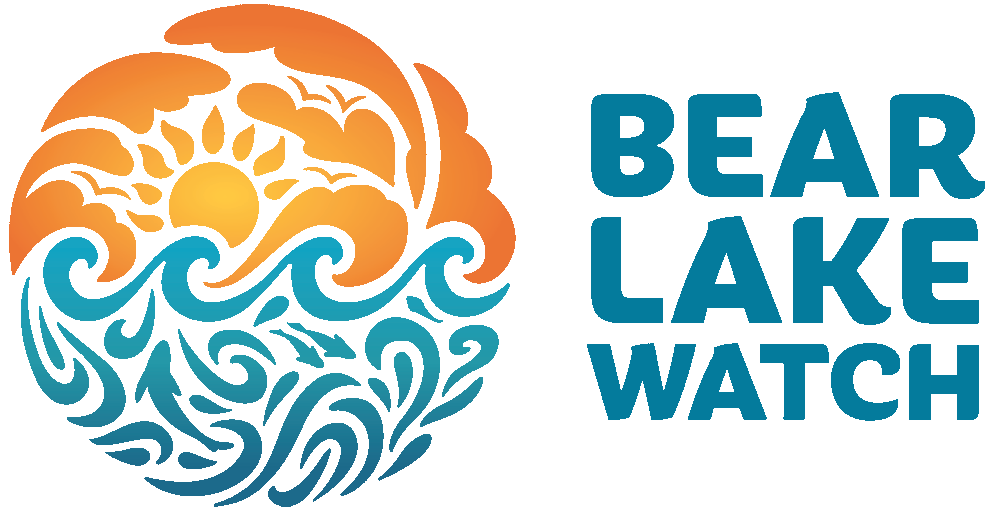Science Center
The proposed educational Science Center at Bear Lake will serve as a vital resource for education, conservation, research, and community engagement, ensuring this precious natural resource’s long-term health and sustainability.
Since 1993, Bear Lake Watch has led the way in protecting and preserving Bear Lake. We’ve compiled a remarkable track record for advocacy, scientific research, education, policy guidance, and win-win solutions. The generosity of supporters like you have sustained these efforts to safeguard the lake for current and future generations.
Make a difference today by supporting the creation of the new Science Center at Bear Lake. Your donation can help turn this dream into a reality.
Brady Long, Executive Director
According to data collected by USU over the past five years, Bear Lake has seen an increase of 300% in visitation! This surge in interest is a testament to the unique beauty and allure of Bear Lake, which is captivating the hearts of visitors like never before.
This increase in attention and use, presents a whole new set of challenges for Bear Lake. The proposed science center will play a crucial role in addressing these issues through education, research, and community engagement.
An educational science center about Bear Lake in Garden City, Utah, is essential for several reasons:
Environmental Education:
Bear Lake is a unique ecological region with distinctive geological features, endemic species, and significant natural resources. A science center would provide valuable educational opportunities for students, residents, and visitors to learn about the lake’s ecosystem, geology, and the importance of conservation.
Conservation Awareness:
Educating the public about the environmental challenges facing Bear Lake, such as pollution, invasive species, and climate change, can foster a sense of stewardship. By understanding the lake’s ecological significance and the threats it faces, visitors are more likely to support and engage in conservation efforts.
Research and Data Collection:
A science center can serve as a hub for scientific research, providing facilities and resources for researchers to study the lake’s environment. This can lead to better data collection, monitoring of the lake’s health, and developing strategies to preserve its natural beauty and ecological integrity.
Economic Benefits:
Attracting tourists and students to an educational science center can boost the local economy. The center can create jobs, support local businesses, and generate revenue through tourism, workshops, and events. Funding for the center will be sourced from a combination of public and private investments, grants, and donations.
Cultural and Historical Preservation:
Bear Lake has a rich cultural and historical heritage, including the stories and traditions of the native Shoshone people and early settlers. A science center can play a vital role in preserving and sharing this heritage, enriching the community’s cultural understanding and appreciation. For instance, it could host exhibits on the lake’s history, offer guided tours to historical sites, and organize cultural events that celebrate the local heritage.
Community Engagement:
The science center can become a community focal point, offering educational programs, workshops, and interactive exhibits for all ages. This isn’t just a center for the community, it’s a center by the community. Your involvement and support can help strengthen community bonds and provide a space for locals to come together and learn.
Educational Outreach:
Partnering with schools, universities, and other educational institutions, the science center can enhance science, technology, engineering, and mathematics (STEM) education. Field trips, hands-on activities, and specialized courses can inspire the next generation of scientists and environmentalists.
Sustainable Practices:
The center can demonstrate and promote sustainable practices, such as water conservation, renewable energy, and waste reduction. By setting an example, it can encourage sustainable living in the local community and beyond. Standards need to be followed to protect future development around Bear Lake.
Tourism Enhancement:
Bear Lake is a popular recreational destination. An educational science center adds another attraction, enriching visitors’ experiences with academic and interactive elements highlighting the lake’s natural wonders.
Conference Rooms and Classrooms:
Working together is the key to understanding how to solve Bear Lake’s issues. Classrooms and conference rooms will provide an environment where officials, the public, and students can come together to learn how we can all work together to solve Bear Lake’s issues.
An educational science center at Bear Lake would serve as a vital resource for education, conservation, research, and community engagement, ensuring this precious natural resource’s long-term health and sustainability.
Help Make the Bear Lake Science Center a Reality
We can each make a difference in the future of Bear Lake, but we must take action and give back to the lake, which has given us so much. Please join Bear Lake Watch in supporting the future of Bear Lake by helping to make the Bear Lake Science Center a reality. -Brady Long, Executive Director
